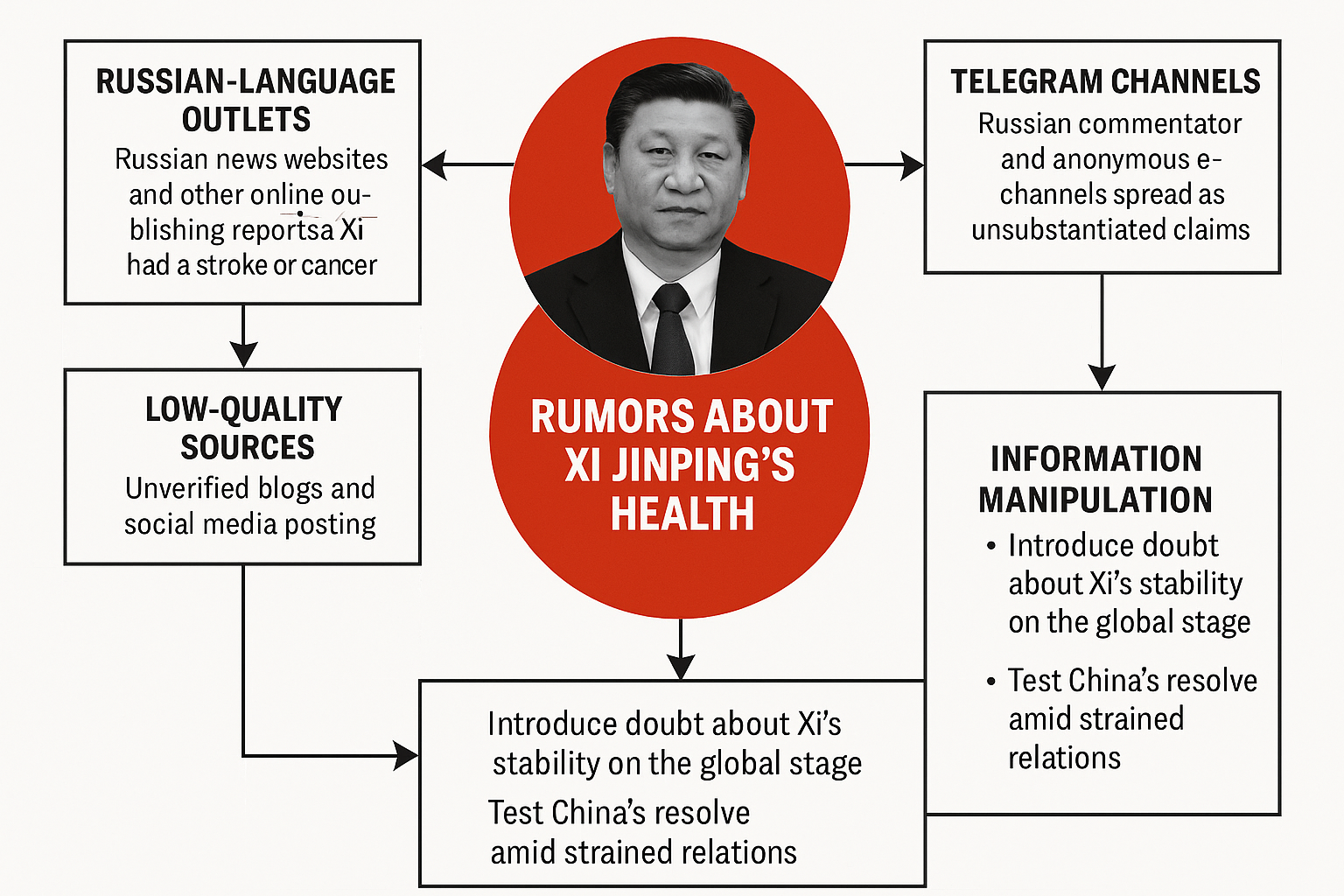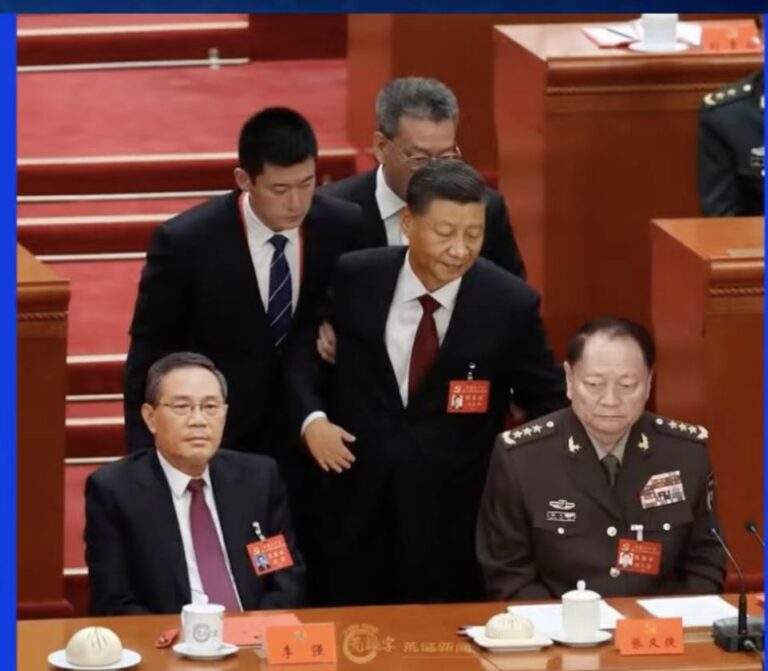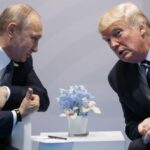- Claims: Several Russian-language outlets and Telegram channels have circulated rumors suggesting Xi suffered a stroke or is battling cancer, citing absence from key meetings, physical changes, and unverified insider tips
- Timing: These rumors peaked during sensitive moments:
- After Xi’s planned speech at a BRICS summit didn’t.
- Amid rising tensions over Taiwan and U.S.–China strategic rivalry.
Assessing Credibility

- No official confirmation: There’s no statement from Chinese or Russian authorities validating these claims. Beijing treated them as baseless.
- Source quality is low: Reports trace back to unverified bloggers or Telegram influencers like “RuNews24,” known for unsubstantiated.
- Analyst skepticism: these seems to be classic cold-war–style rumors—circulated via circular sourcing on social platforms, lacking real vetting .
Why Now — Kremlin’s Possible Motives
- Testing Chinese resilience: Russia may be probing for China’s willingness to support or distance itself amid rising Western pressure.
- Creating strategic ambiguity: A weakened Xi could imply China’s leadership is vulnerable or distracted—benefiting Russian narratives or opening leverage points.
- Deflecting attention from Russia: Circulating rumors about Xi might shift domestic focus from Russia’s issues or generate uncertainty in Sino-Russian signaling.
Potential Impact
- On Chinese internal politics:
- Rumors—if widely believed—could stoke succession anxieties or trigger internal jockeying within the CCP.
- But due to China’s state media control and lack of evidence, effects are likely minimal.
- On Russia–China relations:
- These rumors do not signal a serious diplomatic shift—they reflect informal psychological tactics, not official policy.
- If persistent, they risk eroding mutual trust, but for now are likely within a permissible “gray zone” of influence operations.
- On global perception:
- Western analysts may read this as a sign of “testing ground” psy-ops, but it doesn’t change geopolitical alignments—China remains Russia’s key strategic partner, especially on energy, tech, and diplomatic fronts.
The rumors of Xi’s health issues lack credible evidence and stem from low-grade, opportunistic. Their emergence now appears to be part of Kremlin-linked information manipulation, aimed at:
- testing Chinese resolve,
- creating strategic ambiguity,
- and shifting attention from Russian issues.
Bottom line: These are not signals of Xi’s actual health, nor do they reflect a weakening Sino-Russian alliance. They do illustrate how Russia uses rumor as a geopolitical tool.
Verified Facts and Patterns
- No credible evidence supports recent claims that Xi suffered a stroke, brain aneurysm, or severe illness.
- A Reuters fact-check of images from March 2024 shows Xi was simply pausing during sessions—not displaying signs of a stroke .
- Xi continues to make public appearances at high-profile economic events and diplomatic meetings, with no break in his official duties .
- His tight schedule and visible engagement in state affairs suggest overall fitness—though heavy workloads might reveal fatigue, typical for any leader.
❓ What’s Fueling The Rumors?
- China’s Secrecy Culture
- Chinese authorities do not confirm or refute health speculations, fueling conjecture whenever Xi misses a low-profile engagement.
- Psychological Operations by Foreign Actors
- Russian-language outlets and Telegram channels amplified unverified rumors—likely as part of information manipulation aimed at introducing doubt in global leadership stability.
- Some Russian intelligence briefings (via fringe blogs) claim minor health incidents—though these lack independent confirmation.
- Domestic Political Distraction
- Internally, rumors likely originate from factions within the CCP concerned about Xi’s focus and heavy-handed policies—not necessarily medical issues.
🧩 Strategic Significance
- For Beijing:
- Rumors are seen as disinformation, likely responses to external geopolitical stress (Taiwan, U.S. pressure).
- They are damaging only as far as they create conditions for elite factionalism within the CCP.
- For Moscow:
- Amplifying such rumors serves disruption strategy—it generates strategic ambiguity among major powers and tests information-space control.
- For the West:
- These rumors offer insight into adversary influence tactics, but they aren’t grounded in verified medical data.
🔚 Bottom Line
- Xi exhibits no verified serious health issues.
- Rumors are low-grade disinformation, amplified in Russian-language media and some fringe outlets.
- Xi’s continued public roles and policy activity (economy, international diplomacy) strongly suggest functional fitness and political.
Unless and until China’s official media or state sources confirm otherwise, these health claims should be treated as rumors—not actionable intelligence.
In Russia, the spread of rumors about Xi Jinping’s health likely involves a narrow but powerful circle of actors within the intelligence, information warfare, and propaganda ecosystem. These actors aren’t acting on a whim — they have strategic goals tied to Russia’s global position, especially in its asymmetric competition with the West and complex relationship with China.
Key Actors in Russia Interested in Spreading the Xi Health Disinformation
1. GRU (Main Intelligence Directorate)
- Role: Psy-ops, geopolitical sabotage, elite signaling
- Why? To:
- Test China’s reaction to destabilizing signals,
- Shape elite narratives inside China (e.g. about vulnerability or succession),
- Show Kremlin influence within the info-sphere of strategic partners.
2. FSB (Federal Security Service) – Foreign Influence Department
- Role: Internal monitoring and control of elite narratives; works through state-aligned media and domestic channels
- Why? To:
- Gauge elite and public sentiment within Russia toward China
- Distract from internal Russian issues (military losses, inflation, etc.)
- Prepare groundwork for alternative narratives if China starts distancing from Moscow
3. Russian State-Aligned Propaganda Networks (e.g. Tsargrad, Sputnik, certain Telegram networks)
- Role: Amplification and narrative injection through soft proxies
- Why? To:
- Subtly introduce doubt about Xi’s long-term strength
- Shape perception of China as unpredictable or unstable (especially for nationalist Russian audiences who fear overdependence on Beijing)
- Prepare domestic audiences for a shift in the Kremlin’s China policy, if needed
4. 🏛️ Hardline Eurasianists and Security Hawks
- Includes: Figures close to Aleksandr Dugin, pro-multipolarity theorists, and siloviki (security elites)
- Why? To:
- Weaken China’s perceived dominance within the Russia-China axis,
- Promote the idea that China, too, is fragile — not a perfect or eternal partner,
- Reassert Russia as an equal or even superior geopolitical player.
🎯 Strategic Goals Behind the Disinformation
| Objective | Explanation |
| Signal power | Demonstrate Russia’s reach in psychological operations — even against its largest partner |
| Destabilize a rival | Xi is strong and assertive — weakening his image weakens China’s coherence |
| Prepare for policy shifts | If China distances itself from Russia, these narratives lay the groundwork to blame Beijing |
| Create uncertainty | Russia thrives in “gray zones” — if others believe Xi may be unstable, that uncertainty benefits Kremlin maneuvering |
Bottom Line
The rumor campaign about Xi Jinping’s health doesn’t stem from rogue bloggers — it fits Russia’s deep-state playbook:
Exploit uncertainty, weaken competitors, and control narratives — even at the expense of supposed allies.This doesn’t mean the Kremlin is trying to destroy relations with China — it’s testing limits, signaling strength, and keeping every partner off-balance, including Xi.

More on this story: Bear Meets Dragon: The Escalating Espionage Rivalry Between Russia and China




